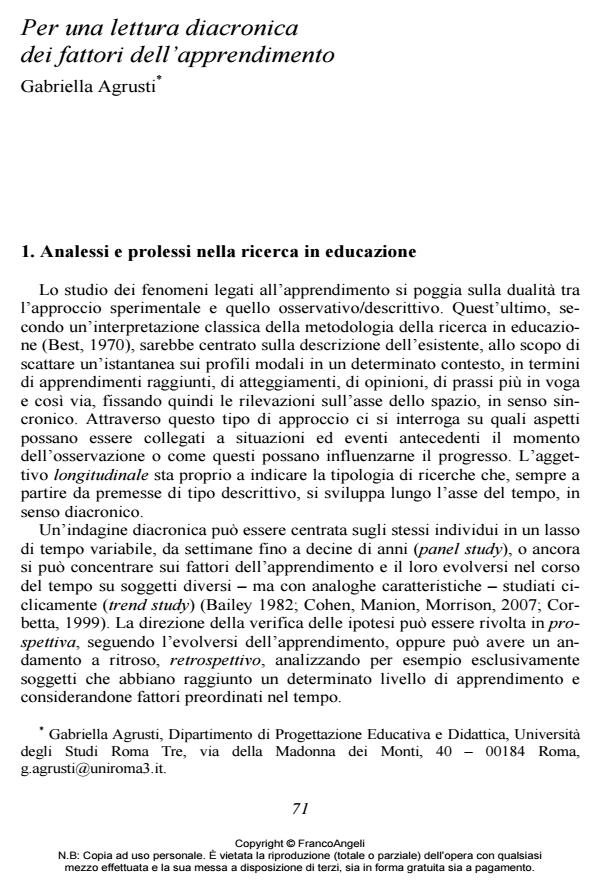Per una lettura diacronica dei fattori dell’apprendimento
Titolo Rivista CADMO
Autori/Curatori Gabriella Agrusti
Anno di pubblicazione 2012 Fascicolo 2011/2
Lingua Italiano Numero pagine 14 P. 71-84 Dimensione file 204 KB
DOI 10.3280/CAD2011-002007
Il DOI è il codice a barre della proprietà intellettuale: per saperne di più
clicca qui
Qui sotto puoi vedere in anteprima la prima pagina di questo articolo.
Se questo articolo ti interessa, lo puoi acquistare (e scaricare in formato pdf) seguendo le facili indicazioni per acquistare il download credit. Acquista Download Credits per scaricare questo Articolo in formato PDF

FrancoAngeli è membro della Publishers International Linking Association, Inc (PILA)associazione indipendente e non profit per facilitare (attraverso i servizi tecnologici implementati da CrossRef.org) l’accesso degli studiosi ai contenuti digitali nelle pubblicazioni professionali e scientifiche
The study of phenomena related to learning is based on the duality between the experimental approach and the observational or descriptive approach. According to a classical interpretation of research methodology in education, the latter is centred on the description of reality, in order to take a snapshot of the modal profiles in a given context, in terms of learning achievements, attitudes of opinions, most popular practices and so on, thus setting the interpretations on the space axis, in a synchronic sense. Through a descriptive approach, it is possible to answer the questions about which aspects can be linked to situations and events prior to the time of observation, or how they can affect their progress. Within the am-learning project on individualisation in distance education, mainly synchronic interpretation models have been used during the stage of the measuring instruments construction and platform testing. However, innovative theoretical designs are needed, that can constitute an appropriate basis for the desired change in learning habits in the long haul. Starting from scientific literature, this paper aims at outlining some of the fundamental aspects of such diachronic modelling.
Parole chiave:Distance education, assessment, diachronic models, learning factors, educational research
Gabriella Agrusti, Per una lettura diacronica dei fattori dell’apprendimento in "CADMO" 2/2011, pp 71-84, DOI: 10.3280/CAD2011-002007